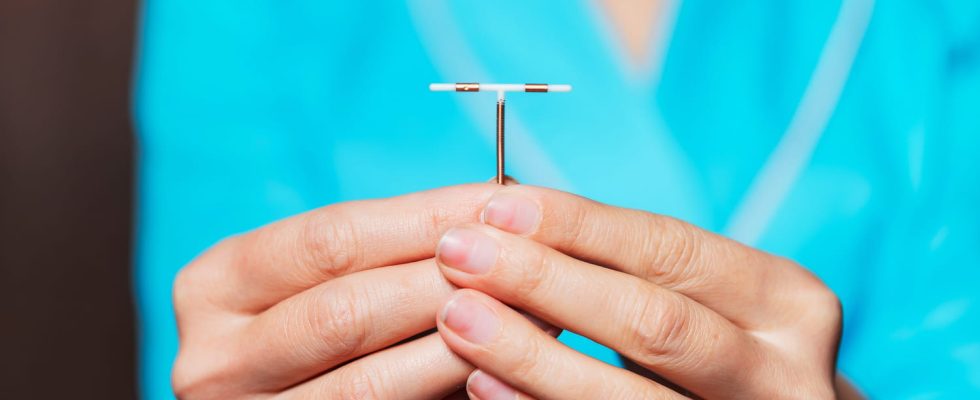The availability of contraceptives is changing. The pill is a little less popular, while the use of the copper IUD and natural methods are progressing. Overview (and disadvantages) of hormonal-free contraception.
What methods of contraception without hormones are available in France?
► The male or female condom are the only methods of contraception that protect against HIV-AIDS and STIs
► The use of spermicides in egg creamssponges or vaginal tablets
► The establishment of a Copper Intrauterine Device (formerly called “IUD”) is the most recommended hormone-free contraception. Its effectiveness is, in theory, 99.4% and in real life 99.4%. 99.2%, which is significantly higher than the pill.
► The cervical cap and diaphragm can be used in addition to spermicides to increase their protective effectiveness.
► “Women can also resort to a permanent contraception such as tubal ligation, the Essure method or vasectomy for men, describes Dr Ghada Hatem-Gantzer, hospital practitioner at the Saint-Denis Hospital and Chief Physician of the Maison des Femmes.
► There are also “natural” contraceptive methods without hormones which aim to know your ovulation period like the temperature curve or the Billings method with the analysis of her cervical mucus in order to avoid intercourse during this period of time so as not to get pregnant. Withdrawal before ejaculation can be part of it (even if it is not a contraceptive method strictly speaking). But they are not very reliable because ovulation never occurs in a fixed manner in a woman’s menstrual cycle. A regular cycle corresponds to always having the same number of days between two periods. Which happens very rarely or almost never in women.
For which women are these methods indicated?
“These non-hormonal methods can generally be offered to women for whom hormonal contraception seems prohibited (with breast cancer for example) and especially to women having unplanned intercourse and not using long-term contraception. These contraceptives can also be used when fertility is not at its best, in the immediate postpartum period, in pre-menopause, and at a certain distance from ovulation. specifies our expert.
What are the advantages of hormone-free contraception?
“The main advantage of non-hormonal contraception is obviously the absence of taking sexual hormones which have a slight incidence on certain cancers (breast) but which protect against others (ovaries, colon)” explains the gynecologist. Hormone-free contraception can also reduce side effects other methods supported by certain women (weight gain, reduced libido, etc.).
What are the disadvantages and risks of hormone-free contraception?
“With the exception of the intrauterine device which offers optimal protection, contraceptives without hormones have slightly lower efficiency than hormonal contraceptives. They also have disadvantages by default, in fact, periods are less painful and heavy on the pill.” Finally, another negative aspect is their intrusive nature during a moment of sensuality which can disturb some people or encourage them to drop their contraceptive so as not to spoil the moment, thus taking the risk of an unwanted pregnancy.
Thanks to Dr Ghada Hatem-Gantzer, hospital practitioner at Saint-Denis Hospital and Chief Physician of the Maison des Femmes.
